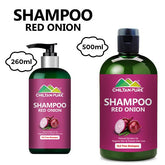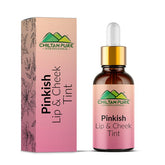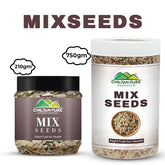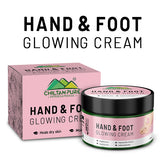Geranium Essential Oil to Treat Anxiety and Depression, Sleeping Problems
| A study published in Phytotherapy Research finds geranium (Pelargonium) effective in treating anxiety and depression. The researchers from Pakistan, Iran, and Italy found that the essential oil of geranium can serve as a potential remedy against mental illnesses like anxiety and depression. |
Most people view mental illness as a matter of shame, despite the surprising number of people being affected by it. It is not only one of the most significant problems in the modern world but also a source of economic burden for most of the victims.
The issues related to mental health cost more than $193.3 billion a year in the U.S. alone. This calls for an urgent need to find safe, effective, and inexpensive remedies for mental illnesses.
Depression and anxiety are plaguing most of the American population at present. According to the National Alliance on Mental Illness, nearly 20 percent of the U.S. adult population suffers from major depressive disorder or anxiety.
Common warning signs of depression
- Hopeless outlook on life
- Wild mood swings
- Changes in appetite and weight
- Sleeping problems
- Loss of interest in the things
- Increased fatigue
- Feelings of worthlessness
- Suicidal thoughts

A change in the production of neurotransmitters, such as serotonin and gamma-aminobutyric acid (GABA) can be the likely cause of the condition. Thus, the anti-depressants and medications for the respective state are designed such that they target pathways that involve these neurotransmitters. However, these medicines cost not only much but also offer various side effects like,
- Elevated blood pressure
- Constipation
- Weight gain
- Nausea
- Diarrhea
This has led the researchers to find effective herbal remedies that can be used instead of these medicines. Several studies find geranium effective against depression and anxiety. It is located in the form of essential oil. It finds extensive use in traditional medicines as a calming agent and for different skin conditions.
In this study, the researchers determined the potential of geranium essential oil as an anxiolytic and antidepressant. They conducted an in vivo test to investigate the anti-depressant properties of geranium. The study was carried out using male Swiss albino mice as animal models.
They were injected with different concentrations of the essential oil in the abdominal area. The results of the study revealed that geranium notably improved the signs of anxiety and depression.
The authors of the study attribute the anxiolytic and anti-depressant effects of the geranium oil to the phytochemicals present in it. These phytochemicals control the biological activities of the plant and include citronellol and geraniol.
Also, the researchers identified the pathways involved in these biological activities. They did this by co-administrating the inhibitors of the serotonin and GABA pathways. Thus, they concluded that only the serotonin pathway was involved in the geranium’s mechanism of action.
Overall, the study proves that geranium essential oil can serve as a natural source to improve anxiety and depression through an action mechanism that involves the serotonergic pathway.

The researchers of the study encourage further research to develop the plant into a more effective, accessible, and safer alternative to conventional anti-depressants and anxiolytics.
How To Use Geranium Essential Oil?
Essential Oils can be used topically (combined with carrier oils and moisturizers) and externally (i.e., around the home).
1) Add 5-7 drops to a diffuser filled with water.
2) Like above, but instead, use reed diffusers in a container of carrier oil with 3-5 drops of essential oil.
3) For Face: Dilute 1 drop of essential oil into 3 drops of your favorite carrier oil (e.g., argan, walnut, apricot, coconut, and almond oils) for face and body.
4) For massage: Dilute 15 drops in 50 ml of your favourite carrier oil (e.g., argan, olive, Avocado, coconut, and almond oils) for the body.




![Red Onion Oil 🧅 Reduces Hair Fall & Accelerates Hair Regrowth [پیاز کا تیل].. Trending.... 🔥 - ChiltanPure](http://chiltanpure.com/cdn/shop/products/red-onion-oil-reduces-hair-fall-amp-accelerates-hair-regrowth-piaz-ka-til-trending-394813_165x.jpg?v=1707464619)
![Red Onion Oil 🧅 Reduces Hair Fall & Accelerates Hair Regrowth [پیاز کا تیل].. Trending.... 🔥 - ChiltanPure](http://chiltanpure.com/cdn/shop/products/red-onion-oil-reduces-hair-fall-amp-accelerates-hair-regrowth-piaz-ka-til-trending-329640_165x.jpg?v=1708127491)















Leave a comment
Please note, comments need to be approved before they are published.